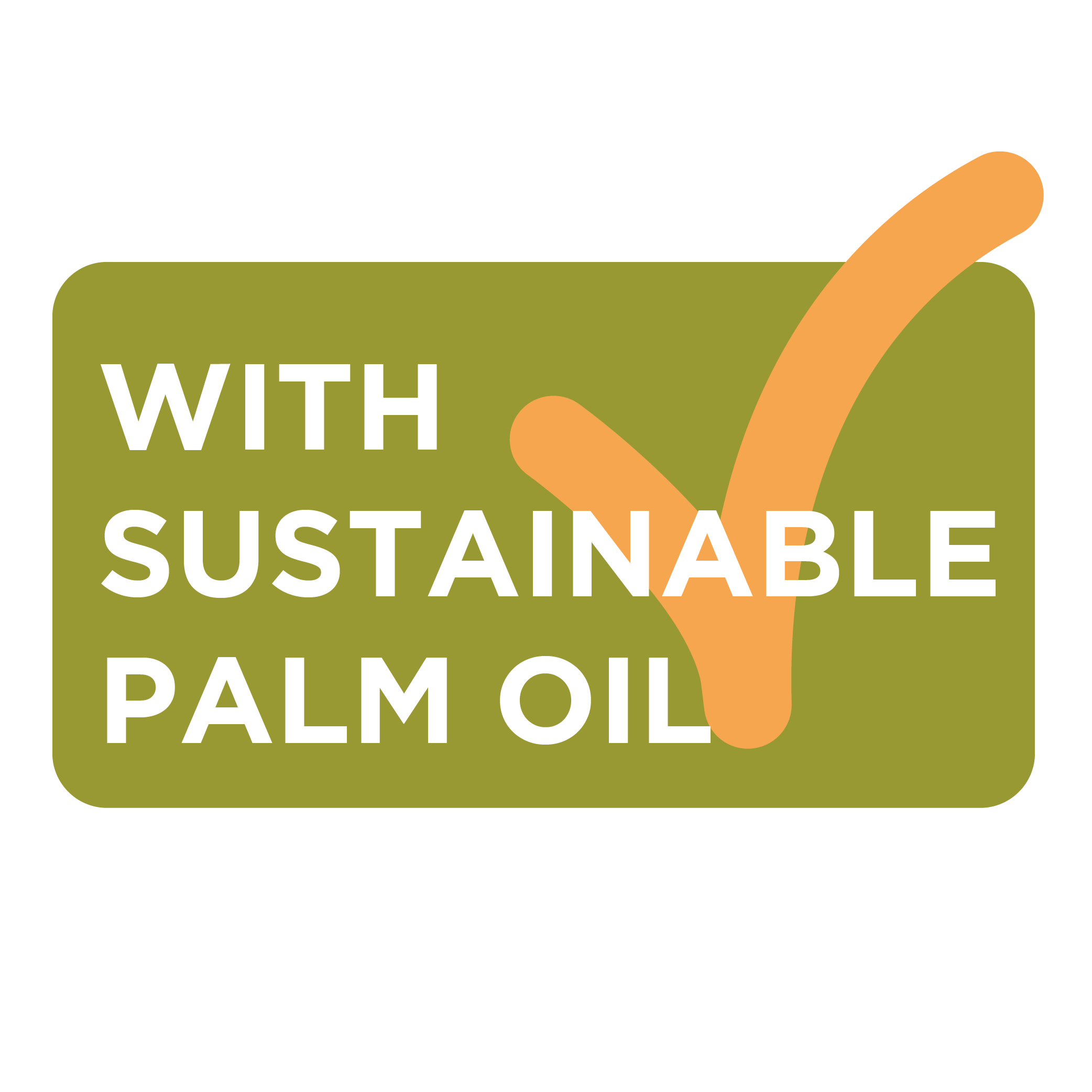Research shows that most consumers associate the term ‘palm oil free’ on a product with a conscious choice regarding environmental issues, ethical concerns and health. They see ‘free from’ claims in general as a positive notion. SPOC is of the opinion that a product packaging should describe the content of the product. So attracting extra attention to the absence of an ingredient will merely be done with a marketing angle and will not help to sell a more healthy or sustainable product.
Palm free products
Palm free claims
In this video the former European Palm Oil Alliance explains why sustainable palm oil is the best alternative to non-sustainable palm oil.
The alternative is sustainable palm oil
Palm oil free products are often considered to be more sustainable. However, the absence of palm oil as an ingredient is given as an argument that a product has been produced with respect for the environment, good labour conditions or human rights.
-
The absence of an ingredient does not automatically make a product sustainable
The absence of a certain ingredient does not say anything on the sustaianbility of a product.
-
Substituting palm oil can worsen the situation
Once a producer makes the choice to replace palm oil, they are automatically faced with the following question: what should be the alternative for palm oil? However, if you are truly looking for a sustainable alternative, you will probably find that exchanging palm oil with other vegetable oils is not such a good idea. Palm oil is by far the highest yielding crop. Other oils need, in contrast to palm oil, more land to produce the same volume. Replacing a high yielding crop with low yielding crops poses then more pressure on the ecosystems and wildlife living in there. This threat is widely acknowledged by conservation organizations and academic researchers from the International Union for Conservation of Nature, Wageningen University and the University of Gottingen.
-
The alternative is sustainable palm oil
European products containing certified sustainable palm oil have to fulfill the requirements of the RSPO. The RSPO is an international multi-stakeholder organization with more than 4000 organizations. Its members, which include NGOs as WWF, Oxfam Novib, CNV International and Solidaridad, develop the rules for what can be defined as sustainable. Deforestation is for example prohibited under the RSPO standard and there are clear requirements related to the rights of workers and land rights. Besides buying certified ingredients, producers can also invest in projects supporting smallholders or apply No Deforestation, No Peat and No Exploitation commitments in their supply chains.
How to make a difference
All in all, one of the main challenges we are currently facing is how to transform our food and agricultural system into a sustainable one. Simply claiming that a product does not contain a certain ingredient is not going to contribute to the change we need. When it comes to the production of palm oil, producers who want to protect rainforests and promote sustainable livelihoods on the ground can do this by investing in transforming the way this crop is produced.
Interested in how to save the rainforest using palm oil? Read this blog.
